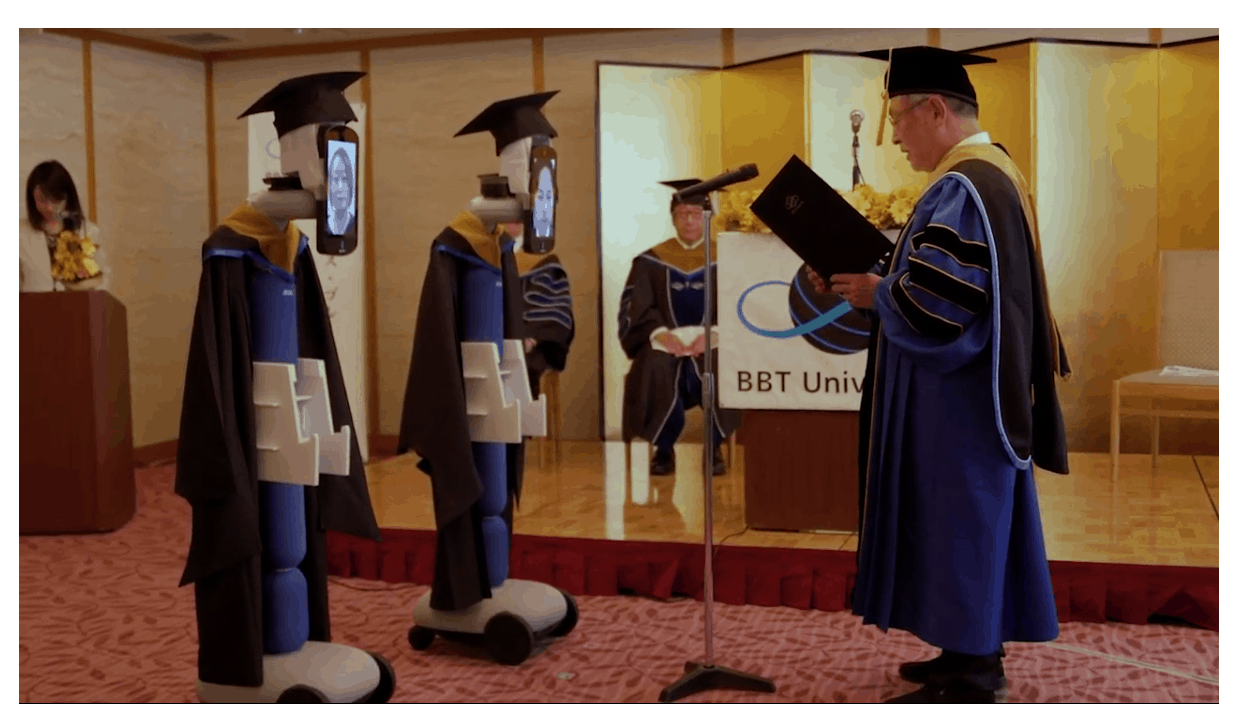In these extraordinary times universities have adopted a range of approaches to providing education online, supporting students remotely and in lockdown on campus and continuing research where possible.
In addition, the sector has been contributing in many ways to supporting the national efforts responding to the Coronavirus crisis – as this set of Universities UK #WeAreTogether case studies notes.
One of the major consequences of the new environment for students due to complete their degrees this summer is that graduations have all been cancelled. Whilst all should get their ceremonial events in due course, nevertheless this leaves a real gap in terms of marking the conclusion of studies and an absence of a major rite of passage for hundreds of thousands of UK graduates.
Looks a bit blocky
In the US, things have taken an interesting turn thanks to the video game Minecraft where students have been using the lockdown time to get on with recreating their campuses. Not only that, but they are also planning to arrange graduation events for themselves, as this recent report in the Chronicle observed:
U. of Pennsylvania students recreated their campus in the popular video game Minecraft, including the Fisher Fine Arts Library.
Students aren’t walking to class or gathering on quads for the time being. But University of Pennsylvania students can heal their homesickness with a visit to the iconic Fisher Fine Arts Library in “Penncraft,” a Minecraft recreation of the campus in meticulous detail.
Some students are even building a Minecraft complex to host 2020 graduations for students across the country; they call it “Quaranteen University.” Raveendran, who’s part of the team, said more than 800 students from about 270 colleges had signaled interest in participating so far. Logistics for the ceremony are still being ironed out, but he said the organizers would try to stagger the festivities to accommodate different time zones.
“While a virtual graduation through Minecraft is never going to live up to or be the same thing as doing it in person, we still think it’s important to have the space where students can come together and celebrate together,” Raveendran said. Minecraft commencement might even be more fun, in some ways. He said they would be able to add spontaneous fireworks and minigames to the event.
Just one look and my heart goes boom
A different kind of creativity was on show recently too as groups of medical students, graduating early in order to join the NHS front line, were involved in large scale Zoom-enabled graduation ceremonies from their homes – they had to create their own mortar boards, gowns and hoods from whatever materials they had to hand (the Burgon Society were, I am sure, horrified).
At the University of Nottingham, our graduating medics appeared on The One Show, before heading off to local hospitals:

Some further suggestions for virtual graduations were offered by a recent contributor to Inside Higher Ed who argued that in these difficult times rituals that provide a sense of meaning and community are more important than ever and the audience might be even bigger. The suggestions for a different kind of graduation include:
Make it collaborative. Graduation day is about the students, after all, so colleges should start by asking them for their ideas. If you doubt this generation’s imagination and creativity, just spend 10 minutes on TikTok.
Go virtual, go visual. Send graduates an invite with a date, a time and a link — maybe a mortarboard and inflatable beach ball, too — and broadcast the ceremony online. Invite your speakers to use visuals, allowing for a more dynamic presentation than the standard fare. In fact, this year could be a great opportunity for directors and visual artists to give innovative, compelling addresses. Think Pixar meets “Pomp and Circumstance.”
Divert events budgets into class(y) gifts. A virtual ceremony costs less money. How about diverting this year’s events budget to any number of civic initiatives to honor what this class has endured?
Encourage community participation. Normally, graduation speakers are invited by the college. This year, it’s anyone’s game. Imagine a movement on social media — #dearclassof2020 — with people everywhere sharing advice and showing graduating students worldwide that we have their backs.
Beach balls and fancy visuals? It’s a thought.
I, robot
But the most exciting development is the use of robots as stand ins for graduands at a ceremony at this Japanese university:

Most students at Tokyo’s Business Breakthrough University could not physically attend their graduation ceremony this March, but a lucky few were selected to collect their diplomas the, uh, old-fashioned way, via cap-and-gown-draped robots with tablets for faces.
Two students each from the business school’s graduate and undergraduate programs were bestowed with the responsibility of remotely controlling the “Newme” telepresence machines during the ceremony, according to Reuters. The hunched-looking robots were procured “with the special cooperation of ANA Holdings,” the school said. ANA operates Japan’s largest airline.
“I think this is truly a novel experience to receive a certificate in a public area while I am in a private space,” said Kazuki Tamura, a student who received his master’s degree via the telepresence machine.
It is an online institution so perhaps they have been intending to do this all along. It will be interesting to see if any other university copies this approach or indeed finds an even more creative way to run a graduation ceremony during the lockdown.













